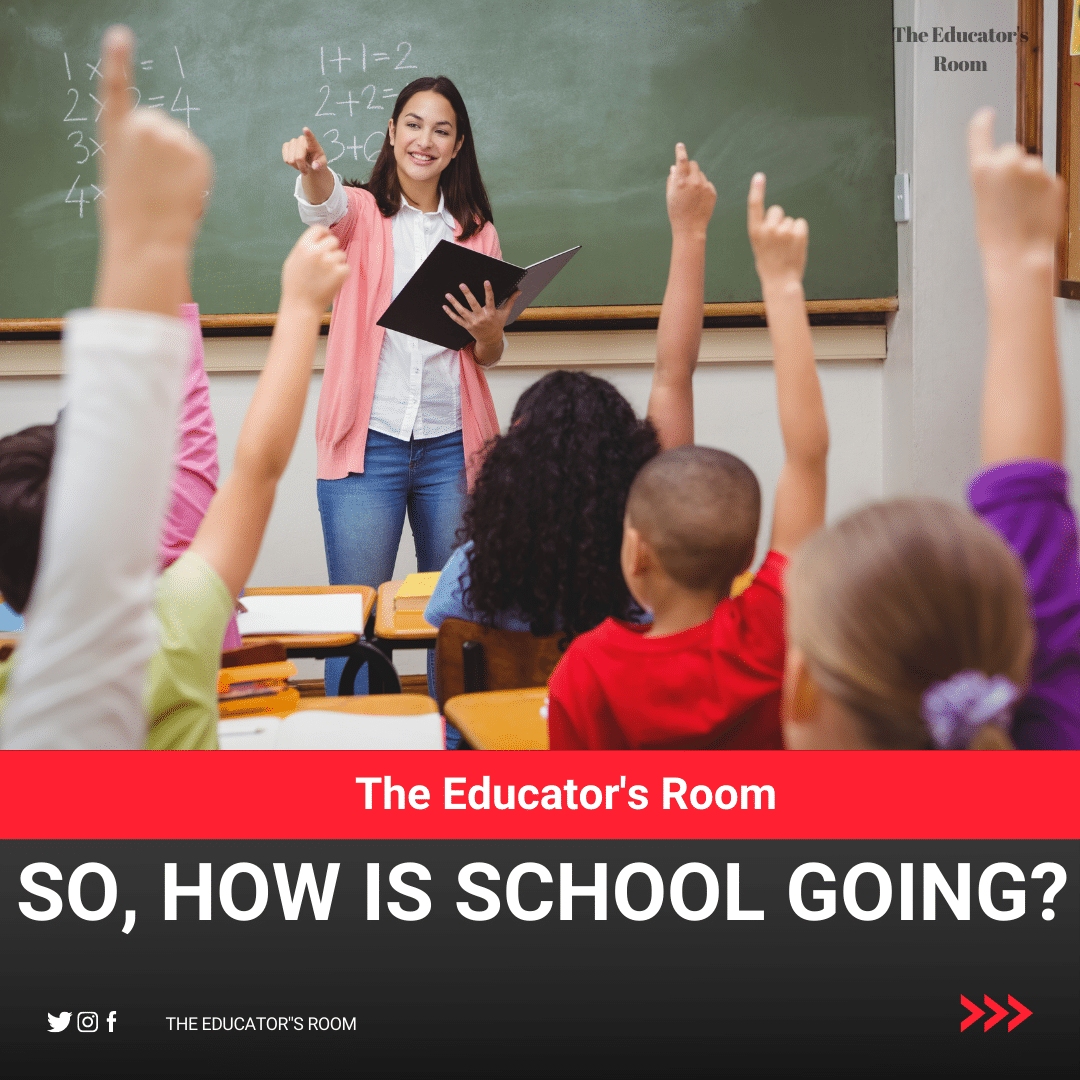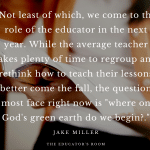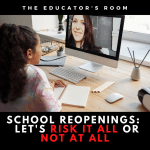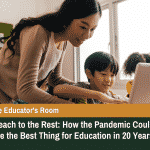I have fielded this question from family, friends, and neighbors. It is a simple question. I have been teaching social studies for over twenty-five years, so I should offer a concise answer. However, the question makes me stammer and equivocate.
I find myself thinking and sometimes saying the following:
- “It’s weird.”
- “I hate every minute of it.”
- “I love seeing the kids, but they are dreadfully quiet.”
- “I can only see their eyes.”
- “I am teaching the kids in front of me and on the Google Meet. I am teaching on two platforms with one paycheck.”
- “I have spent over $300 on equipment to augment my teaching.”
- “Hybrid sucks.”
- “It is fine. I am fine. It is going to be fine.”
The innocent question has me spinning because so much has changed, but the old challenges remain. I take attendance, plan lessons, grade assignments, evacuate the building during fire drills, and have formal observations by the administration. The College Board declares that the Advanced Placement Exams will be full tests, and New York State has not canceled the Regents Exam.
[bctt tweet=”We pretend that everything is normal. ” username=””]
But nothing is.
I write this from home on our first remote-only day. We have two students who have tested positive for Covid-19, and we wait to see if we will return to the building to continue our hybrid learning experiment. We wonder how much longer we can transition from home to school to home without suffering technology whiplash. We marvel at the fact that we made it until October before our building faced positive cases. Although we have had three confirmed cases, we have had many scares. Many of my colleagues and I have taken days in order to return to school with negative tests, stressing the already tenuous substitute situation. We jump when our phone rings, worrying that the department of health might be notifying us that we were exposed.
Working in a nine period day is jolting after years of four seventy-five- minute blocks a day. Timing lessons and activities are foreign and messy. As I walk down the hall, I hear my familiar words echo from my colleagues’ classrooms: “We will finish this tomorrow.” We teach like we are running out of time. Every day is frantic and long. With every student who switches from in-person two days a week to entirely virtual, we lose human contact opportunities. With Covid infections rising nationally, how sustainable is this return to school? We are on borrowed time.
Speaking of hallways…they are eerily quiet. The large, suburban high school where I teach has seldom been low key. Now, due to social distancing, the entire building feels abandoned. The environment adds to the dissonance–the familiar and the unimaginable collide–creating an odd learning atmosphere.
We mask up, sanitize our hands, wash down the desks, crack our classroom windows open, click on the Google Meet, and pray. We hope that we stay safe. We dream that the technology Gods are favorable today. We wish that our subject matter offers some distraction for our students. We optimistically believe that what we are teaching might still matter. It often feels futile and meaningless. What is important anymore?
Some days suck less than others. These are the days when students in class and at home connect somehow, or we play a game that goes well, or I see a smile on the screen or in someone’s eyes. The little victories keep me off the cliff.
No one has time for my long-winded answer to their friendly question, but the answer is complicated for those of us in the trenches. Everything is complicated. The pandemic has changed most jobs, but teaching is forever rearranged. Technology, although faulty, is now more than a tool. It has become our nemesis and our lifeline. Before Covid, teachers were instructors, evaluators, counselors, and much more. We continue the old challenges while troubleshooting technology, reaching students we may never meet in person.
So, for those who want my short answer to how is school going?
I will respond: “It’s okay. I am okay. It will be okay.”






